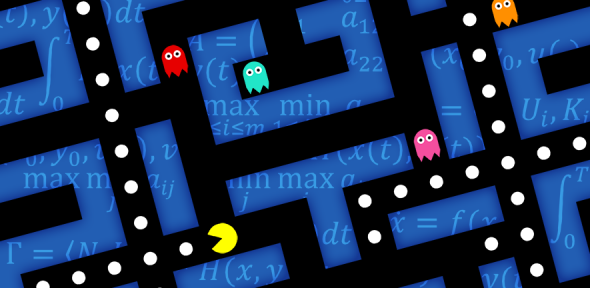Author
Welcome to game theory!
Game theory is the study of multiperson decision problems. This discipline concerns the behaviours of decision makers (players) whose decisions affect each other. Such problems arise frequently in economics.
In fact, the founders of game theory - von Neumann and Morgenstern - developed game theory as an adequate formal apparatus for the study of economic behavior.
The major applications of game theory are to economics, political science, tactical and strategic military problems, evolutionary biology, and, most recent, computer science and artificial intelligence.
In the last few years, a series of outstanding researchers in the field of game theory were awarded Nobel Prize in Economic Sciences. They are J.C. Harsanyi, J.F. Nash Jr., and R. Selten (1994) “for their pioneering analysis of equilibria in the theory of non-cooperative games,” F.E. Kydland and E.C. Prescott (2004) “for their contributions to dynamic macroeconomics: the time consistency of economic policy and the driving forces behind business cycles,” R.J. Aumann and T.C. Schelling (2005) “for having enhanced our understanding of conflict and cooperation through game-theory analysis,” L. Hurwicz, E.S. Maskin, and R.B. Myerson (2007) “for having laid the foundations of mechanism design theory.”
Game theory is designed to address situations in which the outcome of a person’s decision depends not just on how they choose among several options, but also on the choices made by the people they are interacting with. Game-theoretic ideas arise in many contexts. Some contexts are literally games; for example, choosing how to target a soccer penalty kick and choosing how to defend against it can be modeled using game theory. Other settings are not usually called games, but can be analyzed with the same tools. Examples include the pricing of a new product when other firms have similar new products; deciding how to bid in an auction; choosing a route on the Internet or through a transportation network; deciding whether to adopt an aggressive or a passive stance in international relations; or choosing whether to use performance-enhancing drugs in a professional sport.
Today, it seems even impossible to implement intergovernmental agreements on natural resources utilization and environmental pollution reduction (e.g., The Kyoto Protocol) without game- theoretic analysis. In political sciences, game theory concerns voting models, as well as models of defense resources distribution for stable peace achievement. In jurisprudence, game theory is applied in arbitration for assessing the behavioral impact of conflicting sides on judicial decisions.
Depending on the number of players, one can distinguish between zero-sum games (antagonistic games) and nonzero-sum games. Strategy sets are finite or infinite (matrix games and games on compact sets, respectively). Next, players may act independently or form coalitions; the corresponding models represent non-cooperative games and cooperative games. There are games with complete or partial incoming information.
Game theory belongs to operations research, a science originally intended for planning and conducting military operations. Certain types of battles, airplanes dog-fighting, a torpedo pursuing a ship, a missile intercepting an aircraft, a gunner guarding a target against an invader, are typical models for differential games, and we’ll consider them too.

